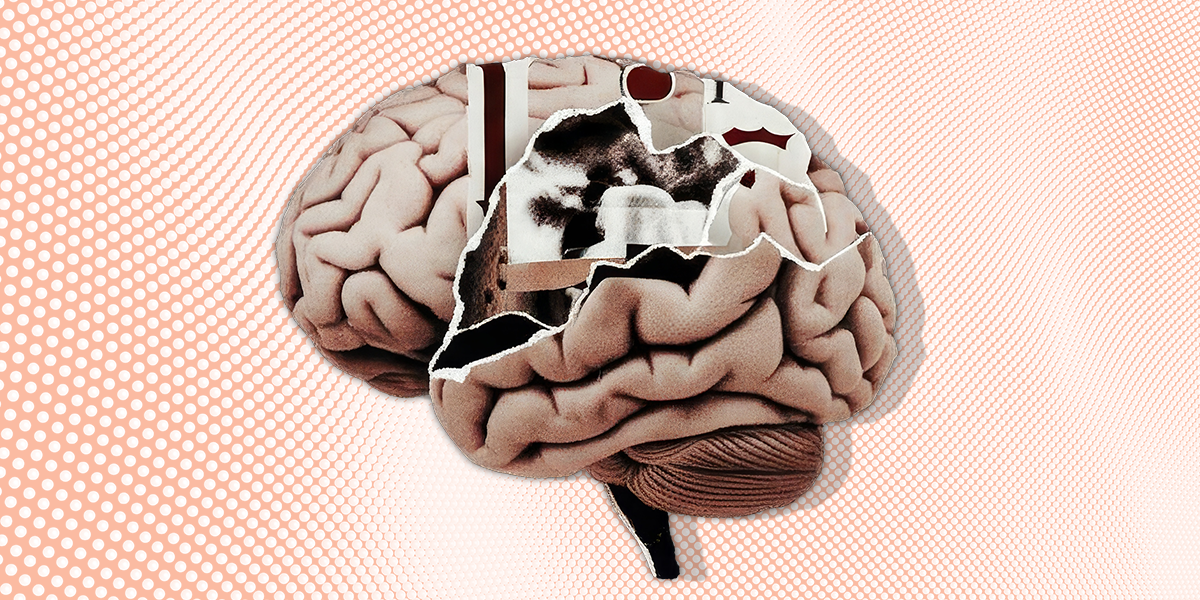
I remember the first time I came up against the idea of comparison culture.
It happened when I was in middle school, performing in a production of A Christmas Carol at my small city’s theater.
I was an extra, and spent most of the show wandering around the stage, miming snowball fights and singing Christmas carols with the other kids.
There was one kid, a friend of mine, who was a really good singer. He had perfect pitch, could hit all the high notes, and memorized music in a heartbeat.
I have a decent singing voice, but this kid was miles ahead of me. At one point in rehearsals, I became frustrated and said, “I’ll never sound as good as him.”
The music director seated at the piano turned to me and said a phrase I’ll never forget: “You compare, you despair.”
It’s been two decades since that rehearsal, but I still repeat those words to myself frequently. Because in that moment, the music director helped me see how easy it is to compare ourselves to others, and how dreadful it usually makes us feel.
Whether you’re aware of it or not, it’s likely that living in a comparison culture has had an impact on you.
I’ll explain that in more detail in this article, along with some practical tips that will teach you how to stop comparing yourself to others, and what to do instead.
Understanding comparison culture
Living in today’s world means being surrounded by opportunities to compare yourself to others. Some of this comparison is natural and healthy—it’s how we learn to navigate the world around us. But modern culture has transformed this natural inclination into something more insidious.
The natural side of comparison
From the moment we’re born, we learn by watching and comparing ourselves to others. It’s how we figure out social cues, learn to speak, and understand which behaviors get positive responses. A toddler watches their older sibling to learn how to use a spoon. A teenager observes their friends to understand social dynamics.
This kind of comparison serves a purpose. It helps us develop and grow, and assimilate into society. When we see someone demonstrate a skill we want to learn, comparing our current abilities to others who are further along with the skill can motivate us to improve. The problems start when comparison shifts from a tool for growth into a source of shame and inadequacy. And it has a tendency to do that without us noticing on a conscious level.
How modern culture exploits our need to compare
The advertising industry discovered long ago that making people feel inadequate is good for business. Show someone a perfect model living a perfect life, and they’ll buy whatever you’re selling to try to achieve that ideal.
You can see countless examples of this, from billboards to YouTube ads. But social media has amplified this effect a thousandfold.
Now we’re not just comparing ourselves to airbrushed magazine models—we’re comparing ourselves to carefully curated versions of people we actually know: Your cousin’s Instagram feed showing their perfect relationship, your old classmate’s LinkedIn updates about their skyrocketing career, or your friend’s TikTok featuring their perfectly organized life.
You probably know, on an intellectual level, that people use social media for self-promotion, and that these posts are highly curated to show only the best bits, while omitting their struggles.
But even if you know that social media isn’t a realistic representation of life, your natural human tendency to make comparisons can cause you to feel the emotional impact anyway. The constant barrage of comparison opportunities is like death by a thousand paper cuts—each small comparison chips away at our sense of self-worth, causing insecurity to skyrocket.
This is why studies have shown that teenagers who spend more time on social media have lower self-esteem and body image issues. I would bet that the same can be said for adults—I can feel the negativity seeping in when I spend too long scrolling, and I know I’m not alone.
Steps to limit unhealthy comparison
While we can’t completely escape comparison culture—it’s baked into our society and human nature—we can develop healthier relationships with comparison.
Here are some practical strategies to help you recognize and reduce harmful comparison habits. It will take time, but with practice, you’ll learn how to stop comparing yourself to others so harshly and so often.
Start noticing comparison thoughts
You likely ended up at this article because you were already noticing your tendency to compare yourself to others.
Sometimes it’s obvious—jealousy and envy often make themselves very clear. You can probably catch yourself thinking something like, I wish my hair looked like that!
But in my experience, there are many more instances of comparison that happen on a subconscious level, and these are much harder to notice.
Your body and mind will often signal when you’re caught in unhealthy comparison before your conscious brain catches up. That sinking feeling in your stomach when you see a friend’s vacation photos, the tightness in your chest during a work meeting, or the sudden drop in mood while scrolling social media—these are all signs that comparison is affecting you. Often these feelings only last for a few minutes, other times they will linger—either way, it’s important to note them.
You can start by setting a timer on your phone to go off every hour. When it beeps, pause whatever you are doing and check in to see how you are feeling. Breathe deeply and look for any tightness in your muscles or anxious feelings in your chest and stomach. Review the thoughts that have been passing through your mind for the last hour. When you’ve had time to reflect, restart the timer and move on. Keep this practice going until it becomes a habit.
For more tips on prioritizing your mental and physical health, check out these articles:
TVI Well-Being Catalog | Your best self is a work-in-progress
Track your comparison triggers
Once you start noticing moments of comparison, you will naturally begin to see patterns—triggers that cause you to make unhelpful comparisons.
I highly recommending keeping a simple note on your phone or in a journal to track these triggers. Write down when you notice comparison thoughts or feelings, and what was happening at the time. Were you scrolling Instagram? Having lunch with a specific friend? Reading work emails? After a few weeks, you’ll likely notice patterns—maybe certain social media platforms consistently make you feel worse, or particular topics of conversation tend to trigger comparison thoughts.
Once you’ve identified your triggers, you can make conscious choices about how to handle them. This might mean unfollowing accounts that consistently make you feel inadequate, setting boundaries around certain conversations, or preparing yourself mentally before situations you know might trigger comparison thoughts.
Choose a phrase that signals to yourself that you’re comparing. While I use “You compare, you despair,” you might prefer something simpler like “Notice” or “Compare trap.” When you catch yourself in comparison mode, say your chosen phrase—either out loud or in your head. This creates a pause between the trigger and your reaction, giving you space to respond differently.
Take intentional breaks from social media
I’ll keep this quick, because virtually every article on the topic of comparison culture makes the same recommendation.
If you really want to stop comparing yourself to others so much, you need some time away from social media.
Even if social media isn’t the root cause, you won’t know for sure until you experience life without it. Think of it as running a personal experiment—what happens to your thoughts, mood, and tendency to compare when you remove the constant stream of filtered photos and highlight reels?
Maybe it won’t reduce your comparison tendencies, in which case, you can just go back to social media. But maybe you’ll discover what many people, myself included, find out: Stepping away from social media makes you feel more present and less anxious, even after just a short break. The key is giving yourself enough time away to notice the difference in how you feel.
For more insights and tips about taking a break from social media, check out these articles:
Practice listening to your own voice
Once you start noticing comparison culture’s impact, the next step is figuring out what you actually want. This is harder than it sounds, because we’re constantly bombarded with messages about what we’re supposed to want.
Take a moment to think about your goals, your career path, or even what you do for fun. How much of that comes from genuine interest, and how much from external pressure? Many of us learn to trust ourselves only after realizing we’ve been following someone else’s blueprint.
Try this: Next time you feel uncertain about a decision, pause and ask yourself, “What do I want?” Then go for a walk, journal about it, or sit quietly with the question. Don’t rush to answer. Give yourself space to hear your own voice without the noise of others’ opinions and expectations.
Reduce your reliance on external validation
As you learn how to stop comparing yourself to others, you may find that you are facing a new challenge: A validation vacuum.
Comparing ourselves is part of our process of seeking validation—something that is deeply ingrained in the human experience. We use comparisons to give ourselves a report card of sorts.
It’s natural to want external validation. We all grow up seeking validation from parents, teachers, friends, and social media likes. But when we become reliant on validation from external sources, we give away our power to feel good about ourselves and our achievements.
For example, perhaps in your art class you subconsciously compare what’s on your canvas to others in the room. It might sound like this in your head: “I’m not nearly as good at still life as Amy, but at least my painting looks better than Neil’s.”
A simple thought like this can cause dual emotions: On the one hand, you feel bad because you’re not as good as Amy, but you also feel a surge of pride and superiority over Neil. In both cases, you are vaidating yourself through external measures.
When you stop comparing yourself to others, you will lose both of these feelings. You won’t feel the pain of envy looking at Amy’s work, but you also won’t feel validated by being “better” than Neil. That can be very uncomfortable at first, as your subconscious realizes that it can no longer rely on that form of validation.
But there’s a way out of that feeling, too.
Building new sources of validation
One powerful way to fill the validation vacuum is to pursue activities solely for your own satisfaction. I’ll use my own example: I recently took up cross-stitching. It’s not something I’ll ever monetize or turn into a side hustle. I’m not particularly good at it, and I don’t share my projects on social media. I do it purely because I enjoy the meditative process of creating something with my hands.
Finding activities like this—ones that have no external reward—helps retrain your brain to value experiences based on how they make you feel rather than how they look to others. Maybe it’s reading poetry, learning to juggle, or collecting interesting rocks. The specific activity doesn’t matter as long as you’re doing it solely for yourself.
The other side of the coin is to start noticing the positive things in your life that are already happening. As you stop seeking validation from external sources, you can fill the space with things you are genuinely proud of, even if they’re small. Maybe it’s the feeling of accomplishment after organizing your closet, or finishing a good book, or making an exceptional cup of coffee for yourself. Reflect on how pleasant these things are, how satisfying they feel, and remind yourself that they came about because of you and no one else.
On a similar note, practice sitting with your achievements without immediately sharing them. When you accomplish something, take time to feel proud of yourself before posting about it on social media. Learn to trust your own judgment about what constitutes success or progress in your life, then allow others to see what you’re already proud of.
Enlist the help of others
A big part of overcoming your comparison tendencies involves focusing on your own needs and wants.
But that doesn’t mean you have to battle comparison culture on your own. In fact, one of the best ways to stop comparing yourself to others is to reach out to someone who can help you be mindful about comparisons.
This may be a close friend, family member, or mentor who has experience with comparison culture and its toxicity.
Most mental health counselors know plenty about the impact of comparison culture on the psyche, and they have great strategies to help. For me, finding the right therapist has accelerated my ability to stop comparing myself to others so much. If this interests you, consider using Psychology Today to find a therapist who accepts your insurance, or look into community resources (college campuses often offer counseling to students, for example).
Breaking free from comparison culture isn’t something that happens overnight. Start with small steps—noticing your triggers, taking social media breaks, and trusting your gut. Remember that your worth isn’t determined by how you measure up to others, but by staying true to your own values and aspirations.






